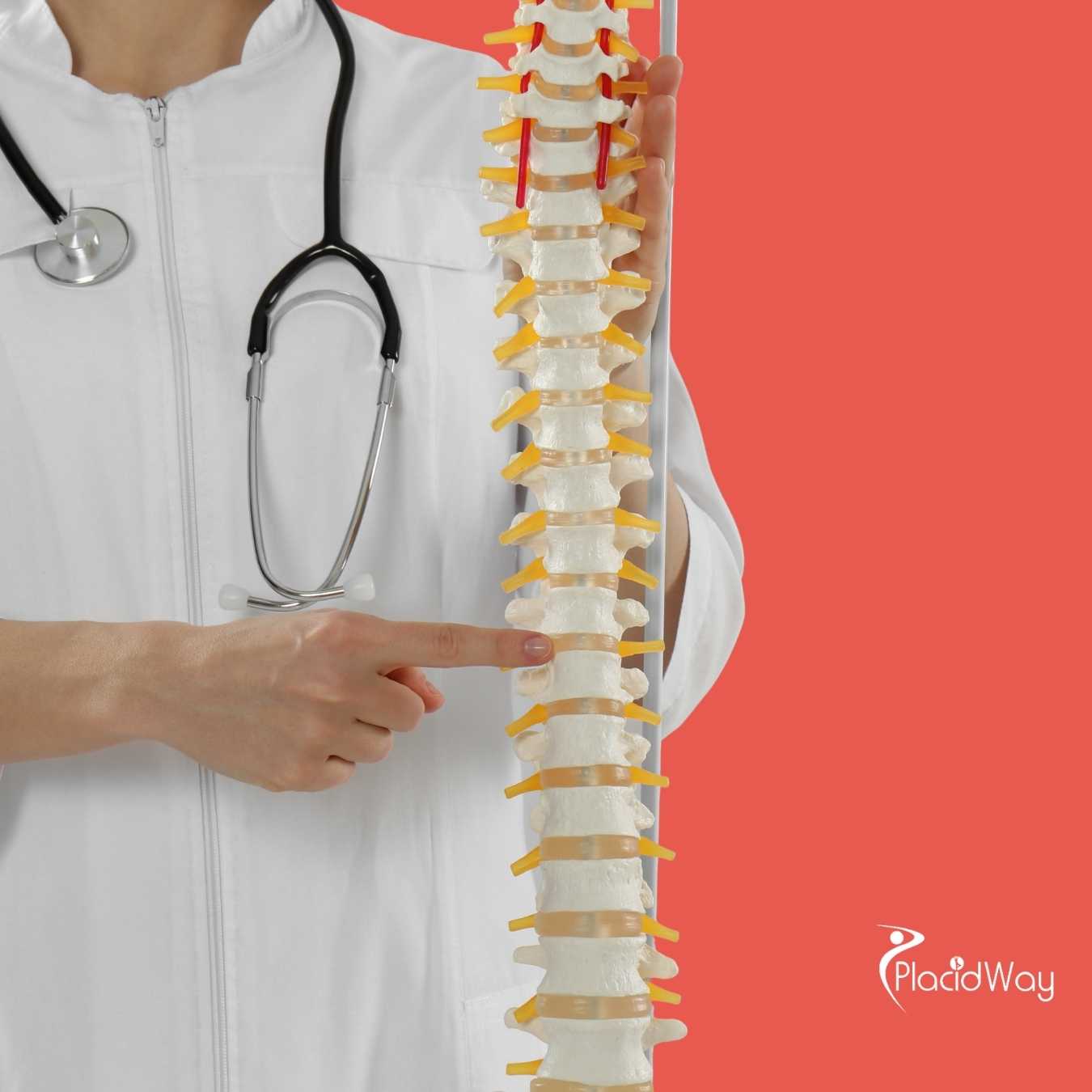Global Guide: The Best Destinations for Stem Cell Therapy
.png)
Finding the best country for stem cell therapy can feel like navigating a complex maze. With advancements happening globally, many individuals are seeking innovative treatments for various conditions, from autoimmune diseases to neurological disorders. This guide aims to shed light on the leading destinations, helping you understand the factors that make a country a suitable choice for your specific stem cell treatment needs. We will explore the crucial aspects of medical tourism for stem cell therapy, including regulatory frameworks, treatment costs, and the types of conditions commonly addressed. Understanding these elements is vital to making an informed decision about where to pursue this evolving medical solution. Whether you are looking for highly regulated options or seeking treatments not yet widely available in your home country, this information will guide you through the global landscape of stem cell therapy.
Where is the best country for stem cell therapy globally?
Many factors contribute to a country being considered "best" for stem cell therapy, including the level of scientific research, regulatory oversight, available technologies, and patient safety standards. Germany, for instance, is highly regarded for its robust regulatory environment and focus on evidence-based medicine, making it a preferred choice for many seeking ethical and safe treatments. Their clinics often participate in extensive clinical trials. Japan has recently made significant strides in regenerative medicine, establishing a fast-track approval system for certain stem cell treatments, particularly for conditions like spinal cord injuries and heart disease. South Korea is another strong contender, known for its advanced biotechnology and substantial investment in medical research, offering state-of-the-art facilities and experienced medical professionals. While the United States leads in research and development, treatments must typically be FDA-approved, which can limit access to experimental therapies compared to some other nations. Other countries like Mexico and Panama have also become popular destinations, often offering less regulated and more accessible (but potentially riskier) options for a wider range of conditions.
What are the key factors to consider when choosing a country for stem cell therapy?
When considering medical tourism for stem cell therapy, it is crucial to evaluate several factors to ensure you make an informed and safe decision. The regulatory landscape is perhaps the most critical; some countries have very strict guidelines, while others may be more permissive, which can influence both the accessibility and safety of treatments. Understanding these differences is paramount. Here are some essential considerations:
- Regulatory Environment: Research the specific country's laws regarding stem cell therapy. Are treatments FDA-approved (or equivalent), or are they considered experimental?
- Clinic Reputation and Accreditation: Look for clinics with international accreditations (e.g., JCI) and a solid track record. Check patient testimonials and independent reviews.
- Physician Expertise: Verify the qualifications, experience, and specialization of the medical team performing the therapy.
- Treatment Protocols: Understand the specific type of stem cells used (autologous, allogeneic), their source, and the administration methods.
- Cost: Compare the overall cost of treatment, including associated expenses like travel, accommodation, and follow-up care.
- Ethical Considerations: Ensure the clinic adheres to ethical standards, especially regarding the source and use of stem cells.
- Language and Cultural Barriers: Consider how communication will be handled and if translation services are available.
What are the regulations surrounding stem cell therapy in different countries?
The regulatory landscape for stem cell therapy is highly diverse across the globe, directly impacting what treatments are available and how they are conducted. This variation is a key reason why patients look beyond their home borders for treatment. Here's a brief overview of regulatory approaches in key countries:
- United States: The FDA strictly regulates stem cell therapies. Most treatments must go through rigorous clinical trials and receive FDA approval. Unapproved therapies are generally not allowed outside of clinical research settings.
- Germany: Known for its stringent regulatory framework, Germany permits stem cell treatments that are evidence-based and have undergone thorough scientific validation. This ensures a high standard of patient safety and efficacy.
- Japan: Japan has implemented a unique regulatory system that allows for conditional and time-limited approval of regenerative medicine products, including certain stem cell therapies, to accelerate access to innovative treatments while still requiring post-market data collection.
- South Korea: South Korea has been a pioneer in approving some of the first commercial stem cell products globally, driven by a strong commitment to biotech innovation and a supportive regulatory environment for regenerative medicine.
- Mexico & Panama: These countries are often destinations for patients seeking treatments not approved elsewhere. Their regulations can be less stringent, offering access to a broader range of experimental or unproven stem cell therapies, which also carries increased risks.
Understanding these differences is crucial for patients weighing their options.
How much does stem cell therapy cost in various countries?
The financial aspect of stem cell therapy is a major consideration for many patients, as these treatments are often not covered by standard health insurance. The cost can vary dramatically based on location, the specific medical condition, the type of stem cells used (e.g., adipose-derived, bone marrow, umbilical cord), the number of treatments required, and the reputation of the clinic. Here's a general idea of cost ranges, though these are approximations and can change:
| Country | Estimated Cost Range (USD) | Notes |
|---|---|---|
| United States | $10,000 - $100,000+ | Highly regulated, high-quality, but often more expensive. |
| Germany | $15,000 - $50,000+ | Evidence-based approach, high safety standards. |
| Japan/South Korea | $20,000 - $60,000+ | Advanced biotech, innovative therapies. |
| Mexico/Panama | $5,000 - $25,000+ | More accessible, but often less regulated or experimental. |
It's important to obtain a detailed quote from any prospective clinic, which should include all treatment costs, follow-up care, and any additional fees. Remember to budget for travel, accommodation, and living expenses during your stay.
Which countries are leaders in ethical and effective stem cell research?
Leadership in stem cell research is defined not just by innovation, but also by a commitment to ethical practices and the scientific validation of therapies. These countries consistently contribute to the global understanding and advancement of regenerative medicine. The United States has long been a powerhouse in biomedical research, including stem cells, with significant funding from institutions like the National Institutes of Health (NIH). This fosters a robust environment for basic and translational research. Japan's proactive regulatory changes have positioned it as a leader in translating research into approved therapies, particularly with a focus on conditions with high unmet needs. Germany's scientific community maintains a strong emphasis on evidence-based medicine, ensuring that new stem cell treatments are rigorously tested before widespread application. South Korea's rapid advancements in biotechnology, coupled with substantial government investment, have also established it as a key player in pioneering new stem cell technologies and therapies. These countries often set the global benchmark for responsible and effective development of stem cell treatments.
Is stem cell therapy for multiple sclerosis available through medical tourism?
Many patients with multiple sclerosis (MS) explore medical tourism for stem cell therapy, particularly for treatments like AHSCT (Autologous Hematopoietic Stem Cell Transplantation). While AHSCT is recognized for treating aggressive forms of MS and is available in many Western countries, its availability and approval status can vary. Countries that offer AHSCT for MS often include reputable clinics in the US, Europe (e.g., Sweden, Russia, and some Eastern European countries), and Mexico. Beyond AHSCT, some clinics in countries with less restrictive regulations, such as Mexico or Panama, may offer other types of stem cell treatments (e.g., mesenchymal stem cells) for MS, which are often considered experimental. Patients seeking these therapies should carefully research the clinic's credentials, the specific treatment protocol, and the scientific evidence supporting its use for MS, as efficacy and safety can vary significantly.
Can medical tourism facilitate access to stem cell therapy for Parkinson's disease?
For individuals with Parkinson's disease, stem cell therapy represents a promising area of research, although most treatments are still in clinical trial phases globally. However, medical tourism does provide avenues to access certain experimental therapies. Currently, the goal of stem cell therapy for Parkinson's disease is often to replace dopamine-producing neurons that are lost in the condition. While significant research is underway in countries like the US, Japan, and Sweden, readily available, approved commercial treatments are limited. Patients often travel to countries where these therapies are offered outside of traditional clinical trials. For instance, some clinics in China, Mexico, or certain Eastern European countries advertise experimental stem cell treatments for Parkinson's. It's imperative that patients considering these options conduct extensive due diligence, consulting with their neurologists, researching the clinic's scientific basis for treatment, and understanding the potential risks and unproven nature of such therapies.
What are the risks associated with overseas stem cell treatments?
While the allure of accessing innovative or more affordable stem cell therapies overseas is strong, it's vital to be aware of the inherent risks. The less regulated environments in some popular medical tourism destinations can lead to significant safety and efficacy concerns. Potential risks include:
- Unproven and Ineffective Treatments: Many clinics outside of strict regulatory scrutiny offer therapies with little to no scientific evidence of efficacy or safety.
- Safety Concerns: This can range from poor sterile techniques leading to infections to the unintended growth of tumors (teratomas) from improperly differentiated stem cells.
- Immunological Reactions: If allogeneic (donor) cells are used and not properly matched or processed, there is a risk of immune rejection.
- Financial Exploitation: Patients may be charged exorbitant fees for treatments that are not only ineffective but potentially harmful.
- Lack of Follow-up Care: Proper post-treatment care and monitoring are crucial but can be difficult to manage when treated in a foreign country.
- Ethical Dilemmas: Some clinics may use questionable sources of stem cells or promote therapies that raise significant ethical concerns.
- Misleading Marketing: Aggressive marketing tactics and anecdotal success stories often overshadow the lack of scientific evidence.
Thorough research and caution are always advised when considering any medical procedure abroad.
How do I verify the legitimacy of an international stem cell clinic?
Verifying the legitimacy of an international stem cell clinic is a critical step in protecting your health and financial well-being. With the proliferation of clinics offering experimental therapies, distinguishing reputable providers from questionable ones can be challenging. Here's how you can approach verification:
- Accreditation: Look for international accreditations such as Joint Commission International (JCI) or other recognized global healthcare accreditation bodies. These signify adherence to high standards of patient care and safety.
- Physician Qualifications: Research the medical director and treating physicians. Verify their board certifications, specialized training in regenerative medicine, and experience with stem cell therapies.
- Transparent Protocols: A legitimate clinic will openly share their exact treatment protocols, including the type of stem cells used, their source, processing methods, and administration techniques. Be wary of vague or proprietary methods.
- Scientific Evidence: Inquire about published research or clinical trial data supporting their specific treatments. Reputable clinics base their therapies on scientific evidence, not just anecdotal claims.
- Patient Testimonials and Reviews: While personal stories can be compelling, seek out balanced reviews from independent sources. Be cautious of overwhelmingly positive, unverified testimonials.
- Regulatory Compliance: Understand the regulatory environment of the country where the clinic operates and ensure the clinic complies with local laws and international ethical guidelines.
- Consultation: A legitimate clinic will offer a thorough pre-treatment consultation, including a comprehensive review of your medical history, realistic expectations, and potential risks.
What role does PlacidWay play in connecting patients with international stem cell therapy?
PlacidWay serves as a global medical tourism platform dedicated to helping patients find suitable healthcare solutions worldwide, including advanced treatments like stem cell therapy. We understand the complexities involved in seeking medical care abroad and aim to simplify this process for individuals and their families. Our role encompasses:
- Extensive Network: We partner with a broad network of international clinics and hospitals that specialize in various treatments, including stem cell therapies, located in countries known for advanced medical care and regulatory oversight.
- Information and Transparency: We provide detailed information about different treatment options, clinic accreditations, physician profiles, and estimated costs, allowing patients to make informed decisions.
- Personalized Guidance: Our team offers personalized assistance to patients, helping them understand their options, compare clinics, and choose a destination that best fits their medical needs and budget.
- Logistical Support: We assist with travel arrangements, accommodation, translation services, and other logistical details to ensure a smooth and comfortable experience during their medical journey.
- Quality Assurance: While patients must conduct their own due diligence, PlacidWay strives to partner with reputable facilities that adhere to international standards of care, contributing to safer and more effective treatment outcomes.
Explore PlacidWay today to discover leading international clinics and comprehensive solutions for your stem cell therapy needs and other healthcare services.


.png)









Share this listing